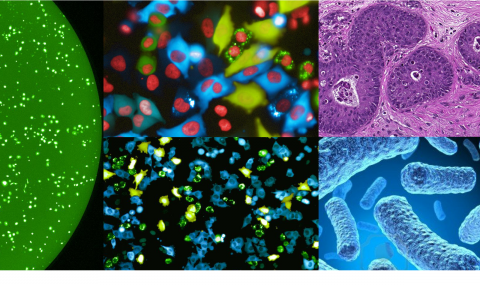Submitted by liann on

Full title: Ex vivo organotypic cultures for synergistic therapy prioritization identify patient-specific responses to combined MEK and Src inhibition in colorectal cancer
The translation of pre-clinical studies to effective treatment protocols is challenging and the response of individual cancer patient to therapy is generally unpredictable likely due to the complex genetic makeup of tumor cells and the impact of their multifaceted tumor microenvironment on drug response. To overcome these obstacles, we optimized an ex vivo organ culture (EVOC) system in which samples of freshly-resected or biopsied tumors are treated for up to seven days and the response assessed by various methods. In the first part of the paper we show the robustness and accuracy of EVOC technology.
We next used the EVOC technology to find novel treatments for colorectal cancer (CRC). We started with an in vitro screen testing the synergistic activity of 276 drug combinations on eight CRC cell lines. After another round of a validation screen we ended up with five drug combinations that are highly synergistic in cell lines. To test if any of these combinations is also effective on primary human tumors, we tested all prioritized combinations on a total of 29 freshly resected CRC tumors ex vivo. We found that only the combination of MEK and Src inhibition was effective when tested in EVOC. Pre-treatment phosphorylated Src was identified as a predictive biomarker for sensitivity to MEK and Src inhibition as well as the absence of KRAS-G12 mutations. Other KRAS mutations did not impede the MEK/Sec sensitivity predicted by high pSrc. We now hope to translate these results into a clinical trial.


